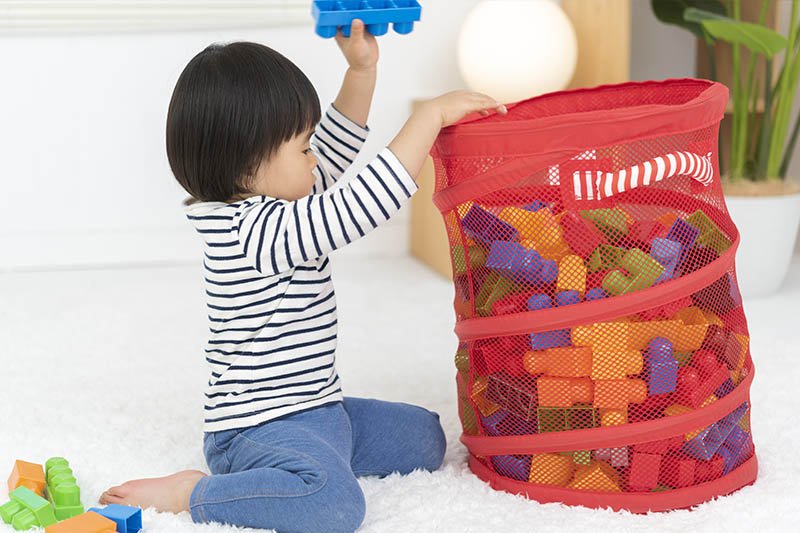There are toys littered across your child’s floor. When you ask them to clean up, you are met with a resounding “No” or “I’ll do it later.” Or worse, you get no response at all. You decide to come back in five minutes and ask again in a firmer tone. After not getting the response you seek, you raise your voice. “Do it now!” you command. When this doesn’t work, you shout or plead with them. At last, you sigh and shake your head as you just clean the room yourself. Sound familiar?
Getting your child to clean up can be just as much of a chore for you as it is for them. They were thrilled to take the toys out, but there’s no fun in cleaning up afterwards. Your child’s priorities are different than yours. You want order and they don’t mind chaos. While this leads to conflict, it doesn’t have to. With guidance, you can help your child understand the importance and instill a sense of pride in being orderly and organized. Here are some ways that you can help your child learn this important skill.
4 Tips to Get Your Kids to Clean Up
1. Lead by example.
You keep your space clean and expect the same from your child. If you keep your home neat, you demonstrate that this is important to you and should be for them. Forming good cleaning habits will help you consciously put effort into keeping your home neater, instead of tolerating chaos and mess. It’s also easier to identify what your child needs to clean up if everything else is organized. Moreover, you are modeling the positive behavior you expect from your child.
2. Be firm and state your expectations clearly at the beginning of play.
Hold your child accountable and explain they cannot move on to another activity until belongings are put away. If your child is aware of the rules upfront, and especially if they agree to them, there are no surprises and less room for arguing. They will also learn to expect what will be required of them when they are finished playing or engaged in any activity. This can help them negotiate with you for rewards after they are finished, such as a snack or engaging in a desirable activity.
3. Make clean up a game.
Who can do it the fastest or best? Cleaning up does not have to be arduous or a battle. Instead, you can teach your child it can be fun. They may just find themselves enjoying clean-up and feel gratified by the outcome. Provide a lot of praise when your child listens to you and get excited when you see your child clean up. Your enthusiasm and positivity will be infectious. Children are actually very eager to please their parents. This is an opportunity for them to shine, and for you to show them how their actions make you proud.
4. Do not clean for them!
Not only do you need the room to be cleaned, but you are teaching your child to be responsible and respectful of their possessions. They will continue to resist and argue with you if you are not firm. In the short-term, it might seem easier just to clean for them. After all, it’s exhausting to fight with them. Keep in mind you are teaching your child good habits that will help them now and in the future.



